October 2021 Current Events: World News

US News | Science & Technology News | Disaster News
The world is a very busy place, and it's hard to stay on top of everything. Infoplease has got you covered. Here are the US news events you need to know so far for October 2021:
- Changes to Many Parts of the World
- Military Coup in Sudan
- Fuel Shortages, Violent Protests, and Tragedies Rock Countries
- Coronavirus Updates (4)
- Violence Continues to Surge Across the World
- Kidnapping in Haiti
- Coronavirus Updates (3)
- Violence Grips the World
- Low Voter Turnout in Iraq
- Coronavirus Updates (2)
- Unrest in Afghanistan Continues
- Violence and Tragedies Grip Various Countries
- North Korea Opens Communication with South Korea
- Coronavirus Updates
Changes to Many Parts of the World
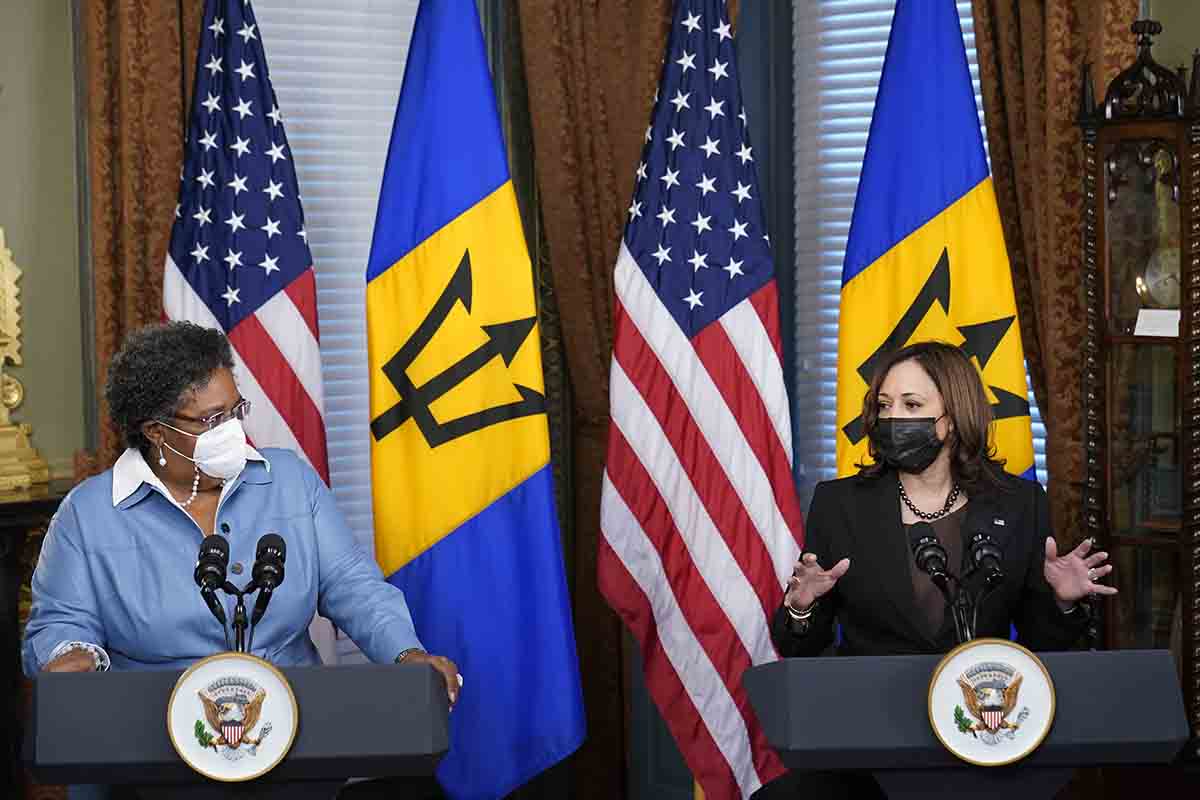
Photo Source: AP Photo/Susan Walsh
On Monday, October 25, Barbados elected its first president, outing Queen Elizabeth II as the head of state. The country elected Sandra Mason in a two-thirds vote mid-last week. Though the area gained independence in 1966, it has still been closely tied to the United Kingdom. Mason will officially be sworn in on November 30.[1] On Tuesday, October 26, Japan’s Princess Mako married her non-royal college sweetheart in a low-key ceremony. The marriage officially signifies Mako’s departure from the royal family. The couple has been plagued by controversy since announcing their engagement four years ago. Mako even denied the $1 million government payout for departing the royal family due to the backlash the couple has faced.[2] On Thursday, October 28, Hong Kong passed a controversial film censorship law, allowing officials to revoke a film’s license if it is found to "endorse, support, glorify, encourage and incite activities that might endanger national security". The law comes after the pro-democracy protests that occurred over two years ago.[3]
Source: [1]CNN [2]CNN [3]CNN
Military Coup in Sudan
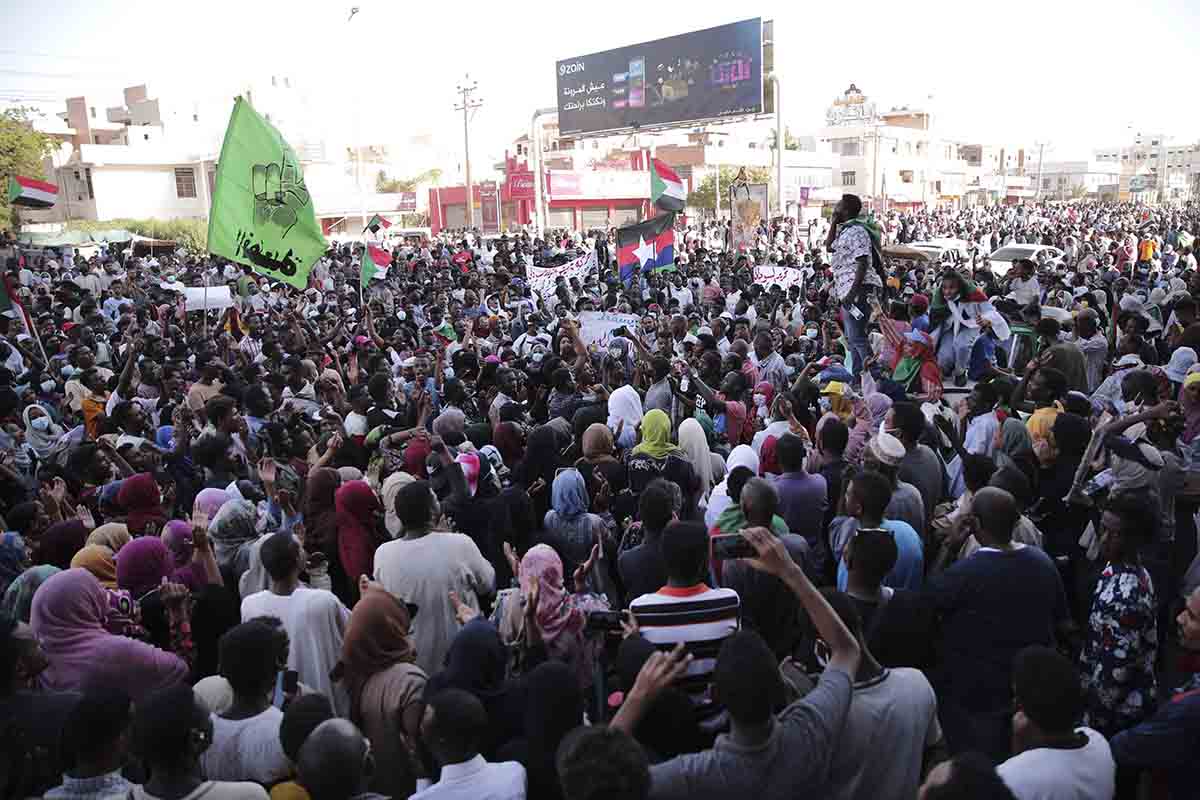
Photo Source: AP Photo/Marwan Ali
On Monday, October 25, Sudan announced a state of emergency after the military dissolved the country’s power-sharing government. The former president was ousted in 2019 and many hoped it would be a peaceful transition, but the country is now descending into a crisis. The military previously shared power with civilian groups, but has now taken control, arresting the Prime Minister and his wife and many other government officials.[1] The coup doesn’t come as a complete surprise, though Prime Minister Hamdok made a statement the week prior that civilian groups will gain complete control. Military forces have suspended articles to the constitution and dashed hopes of an elected government. The US has paused $700 million of emergency assistance to Sudan due to the military coup.[2] On Saturday, October 30, thousands marched in protest of the military’s coup in Sudan. Police fired tear gas and live rounds into the crowd, killing at least three protesters. The ministry denies firing live rounds, but activists claim at least 100 people were injured. For the most part, however, the protesters have remained peaceful, mostly chanting for democracy.[3]
Source: [1]CNN [2]CNN [3]BBC
Fuel Shortages, Violent Protests, and Tragedies Rock Countries
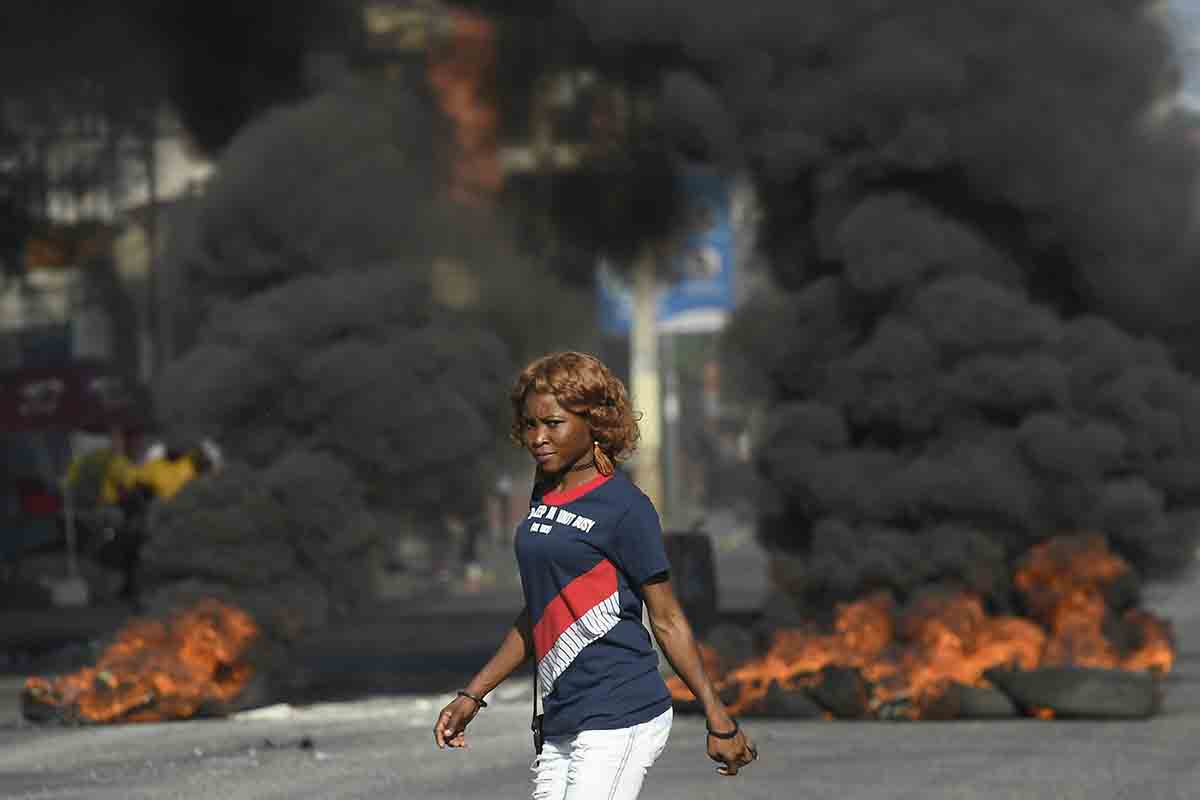
Photo Source: AP Photo/Matias Delacroix
On Thursday, October 21, Syria executed at least 24 people who were connected to the fires that ravaged the country last year. The perpetrators had admitted to intentionally igniting the fires. Eleven others were charged and sentenced to a life of hard labor. The fires damaged hundreds of homes and killed three people.[1] On Monday, October 25, German police reported that they stopped at least 50 far-right vigilantes that planned to patrol the Germany-Poland border and stop migrants from entering. The group was carrying many weapons.[2] On Tuesday, October 26, CNN reported on the absolute devastation in Haiti due to the fuel shortage. Not only is it affecting the everyday lives of people, but the fuel shortage is affecting hospitals. Many hospitals in Haiti run on generators, which require gasoline. Hospital workers are turning most people away as they determine who truly needs support. Many doctors and nurses are staying at the hospital because they may not be able to make it back without fuel. Kidnappings are also on the rise.[3]
Source: [1]CNN [2]CNN [3]CNN
Coronavirus Updates (4)
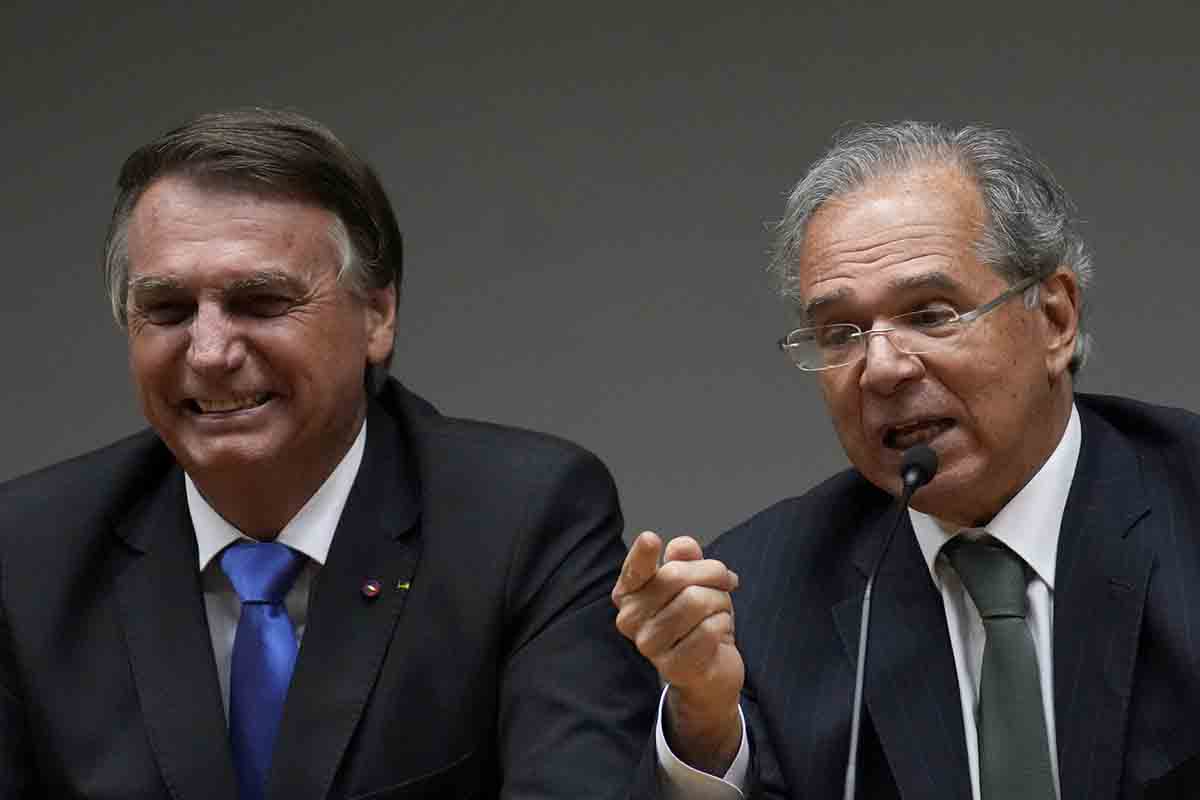
Photo Source: AP Photo/Eraldo Peres
On Tuesday, October 26, Australia announced that all fully-vaccinated citizens and permanent residents will be allowed to leave the country without special exemptions starting November 1. Thousands of residents will also be returning home after being blocked from the country at the start of the pandemic.[1] On Wednesday, October 27, the countdown to the Winter Olympics officially began, with only 100 days left. Unfortunately, Beijing, where the Olympics will be held, is facing a widening Covid-19 outbreak. The pandemic could overshadow Beijing’s accomplishment of becoming the first city to host both the Summer and Winter Olympics.[2] On Thursday, October 28, Moscow entered an 11-day paid holiday in an effort to slow the growing number of Covid cases. The rest of the country will most likely join Moscow in the “non-working” days, as the country saw over 1,000 deaths in just 24 hours. Many establishments have closed, as people are urged to stay home. Government and state services have also closed, but will continue to render services online.[3] On Saturday, October 30, Brazilian Senators voted to back the criminal charges against President Bolsonaro. The vote is now being sent to the chief prosecutor, and appointee of President Bolsonaro. This new decision may still not lead to criminal charges.[4] On Saturday, October 30, Tongo reported its first Covid-19 case. Many island residents are now rushing to get vaccinated as the area announced its first case since the pandemic began. The island will most likely place its 100,000 residents on a strict lockdown. The positive case was in a fully-vaccinated individual.[5]
Source: [1]CNN [2]CNN [3]CNN [4]CNN [5]BBC
Check out some more Covid resources.
Violence Continues to Surge Across the World
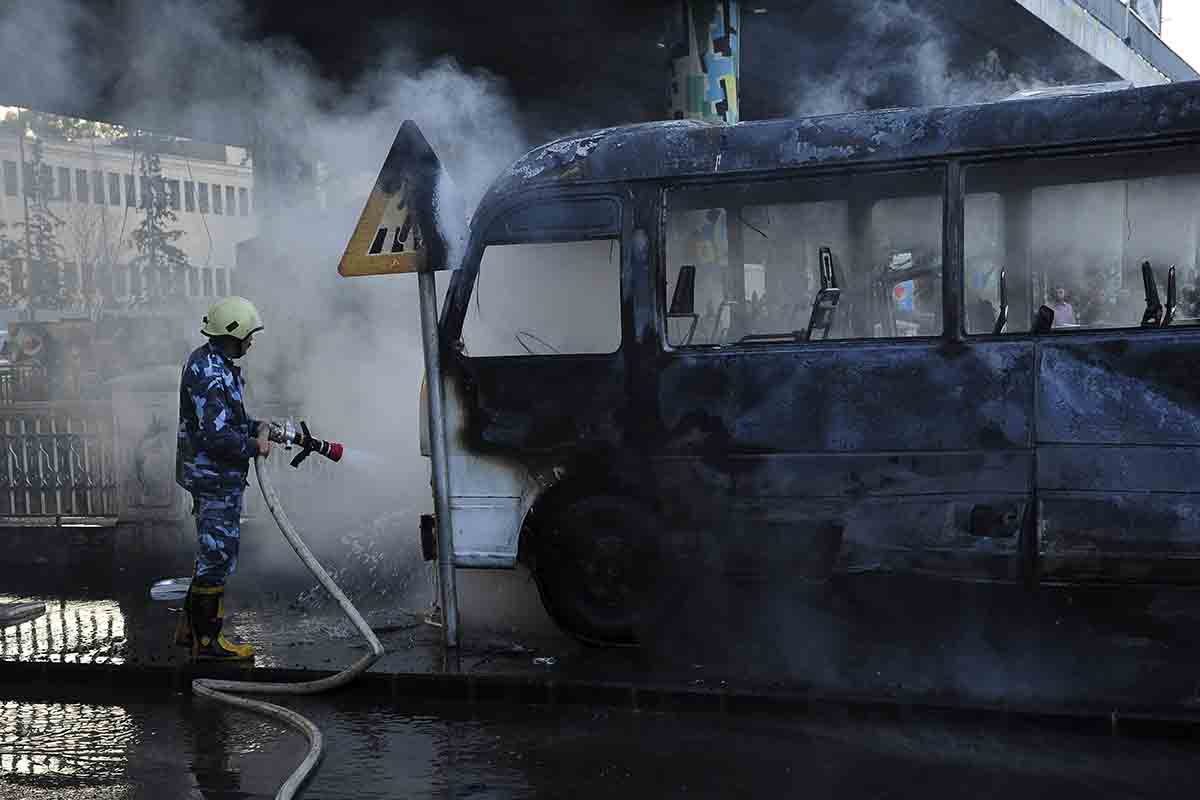
Photo Source: SANA via AP
On Wednesday, October 20, it was reported that Ethiopia’s Tigray region was hit with new airstrikes, covering the area in smoke and debris. The airstrikes were meant to attack weapons sites of the Tigray People’s Liberation Front. However, the airstrike hit a residential area and caused harm to civilians and their property. Though no casualties have been reported with this strike, three children and one adult were killed in an airstrike hitting the same region on Monday.[1] On Wednesday, October 20, police fired tear gas into a crowd of protesters in Lagos. The protesters were there to remember those who lost their lives during the protest in the same NIgerian region this time last year. Last year, demonstrators were shot during their #EndSARS movement. The Nigerian government still claims the shooting never happened despite video and photographic evidence. Police have arrested some demonstrators this year.[2] On Wednesday, October 20, a drone attack in Syria targeted a US base and US troops in the region. An original assessment suggested that there were no damages, but damage assessments are still in the works.[3] However, that same day, 10 people, including 4 children, were killed in Syrian regime strikes. Earlier that day, 14 people were killed after a military bus was targeted with two explosive devices. These latest attacks show that the war is not over quite yet.[4]
Source: [1] CNN [2]CNN [3]CNN [4]CNN
Kidnapping in Haiti
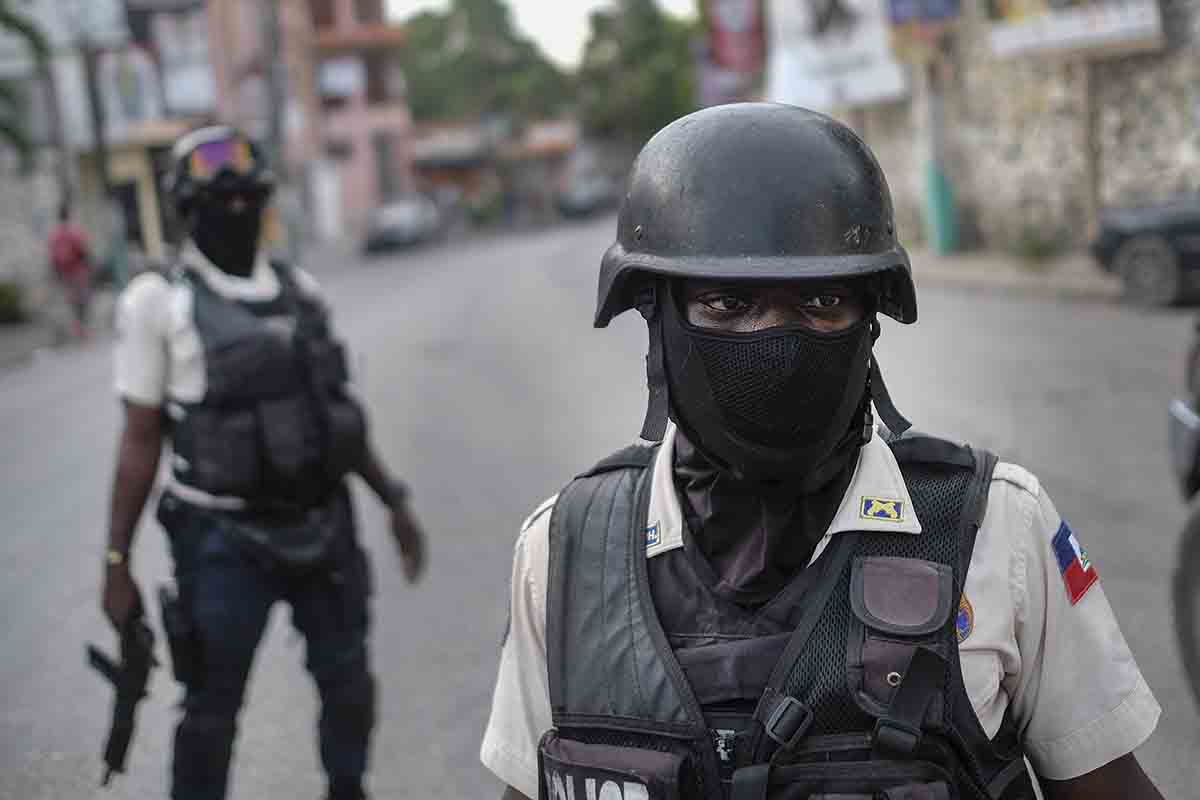
Photo Source: AP Photo/Matias Delacroix
On Monday, October 18, it was reported that the previous Saturday, 17 missionaries from the US and Canada were kidnapped in Haiti. Some of the missionaries are minors, according to Christian Aid Ministries. Among those kidnapped are five men, seven women, and five children. An investigation by Haiti’s security forces suggested the kidnapping was done by gang members.[1] The following day, on Tuesday, October 19, the kidnappers made contact with the organization, demanding a $17 million ransom. The gang, called 400 Mawozo, is demanding $1 million for each person. As negotiations continue, the FBI and Haitian police are instructing the hostages on how to move forward.[2] On Thursday, October 21, the leader of the gang released a video threatening to kill the hostages if he doesn’t get what he wants. Little information is available as it is an ongoing FBI situation.[3]
Source: [1] CNN [2]CNN [3]CNN
Learn more about Haiti.
Coronavirus Updates (3)

Photo Source: AP Photo/Eraldo Peres
On Sunday, October 17, many countries in the Asia-Pacific region announced that they’ve already ordered an antiviral pill, Molnupiravir, that’s not even approved yet. The pill was created by an American company, and if approved, will be the first antiviral pill used to fight Covid-19. Many Asian-Pacific countries missed out on the early-order of the vaccines, so they are trying to combat that this time around.[1] On Tuesday, October 19, leaked reports showed the Brazil’s congressional panel is set to vote on charges against President Bolsonaro. Senators have recommended Bolsonaro be charged with 10 crimes, including crimes against humanity, for the way he has handled the Covid-19 pandemic. Originally, the congressional committee was going to recommend Bolsonaro be charged with mass homicide; however, the charges have changed.[2] On Wednesday, October 20, it was reported that scientists are looking closely at a new subtype of the Delta variant that is causing even more infections in the UK. This newly discovered variant has accounted for 6% of the new cases.[3] On Wednesday, October 20, as Russia’s crisis deepened, it was mandated that unvaccinated people over the age of 60 must stay home for 4 months. The strict mandate comes as the healthcare facilities are on the brink of collapse. The days between October 30 and November 7 have been declared non-working days in an attempt to slow the spread, as well.[4] On Wednesday, October 20, the WHO released a report saying the pandemic will go well into 2022 because poorer countries do not have access to the vaccine. Officials are pleading with countries to donate vaccines to low-income areas in order to end the pandemic sooner.[5] On Thursday, October 21, Canada announced that it will start a proof of vaccination program for both domestic and international travel. The country will have a watermarked certificate that will aid other countries, airlines, and cruise lines in recognizing legitimate documents.[6]
Source: [1]CNN [2]CNN [3]CNN [4]CNN [5]BBC [6]CNN
Check out some more Covid resources.
Violence Grips the World
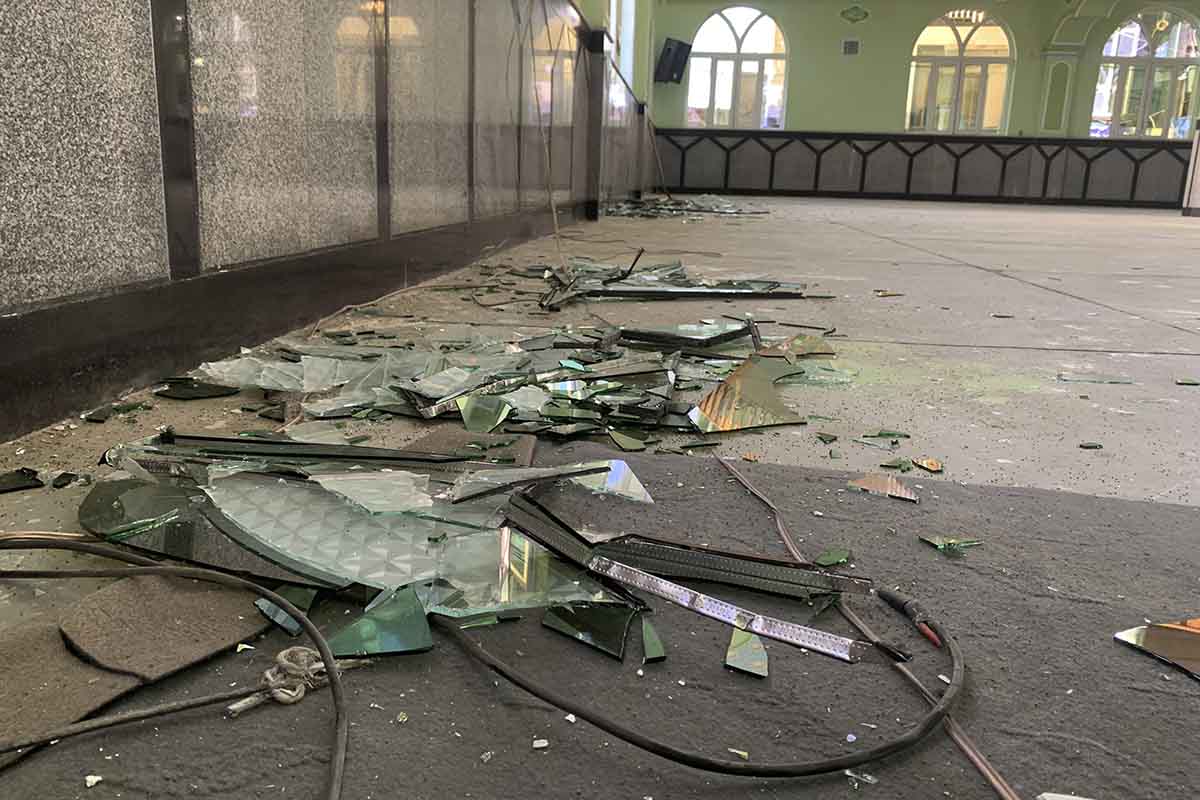
Photo Source: AP Photo/Sidiqullah Khan
On Wednesday, October 13, at least five people died after a bow and arrow attack in Norway. The suspect is in custody and has been charged with five counts of murder. Police are still seeking a motive. It is unclear whether it was a mental health issue or a terrorist attack.[1] On Thursday, October 14, Beirut saw some of the worst violence it’s seen in recent years. Dozens of protesters were marching towards the Justice Palace when gunmen and snipers began firing at them from rooftops. The political group Hezbollah called for the march to demand the removal of a judge overseeing the port blast case. At least five people died and another 30 were injured due to the shooting. The attack lasted for hours as citizens sought shelter wherever possible. The US has condemned the attack and pledged money to the Lebanese Army in response.[2] On Friday, October 15, lawmaker David Amess of the UK was fatally stabbed while meeting with constituents. Amess was a member of Prime Minister Boris Johnson’s Conservative Party. An early investigation suggests that the attack is linked to Islamist terrorism, and a suspect is currently in custody. The attack has shocked the nation and prompted more conversation regarding security.[3] On Friday, October 15, another suicide attack at the largest Shia mosque in Kandahar, Afghanistan killed at least 32 people and injured another 68. ISIS-K has claimed responsibility for the attack. The UN has condemned the latest attacks.[4]
Source: [1]CNN [2]CNN [3]CNN [4]CNN
Low Voter Turnout in Iraq
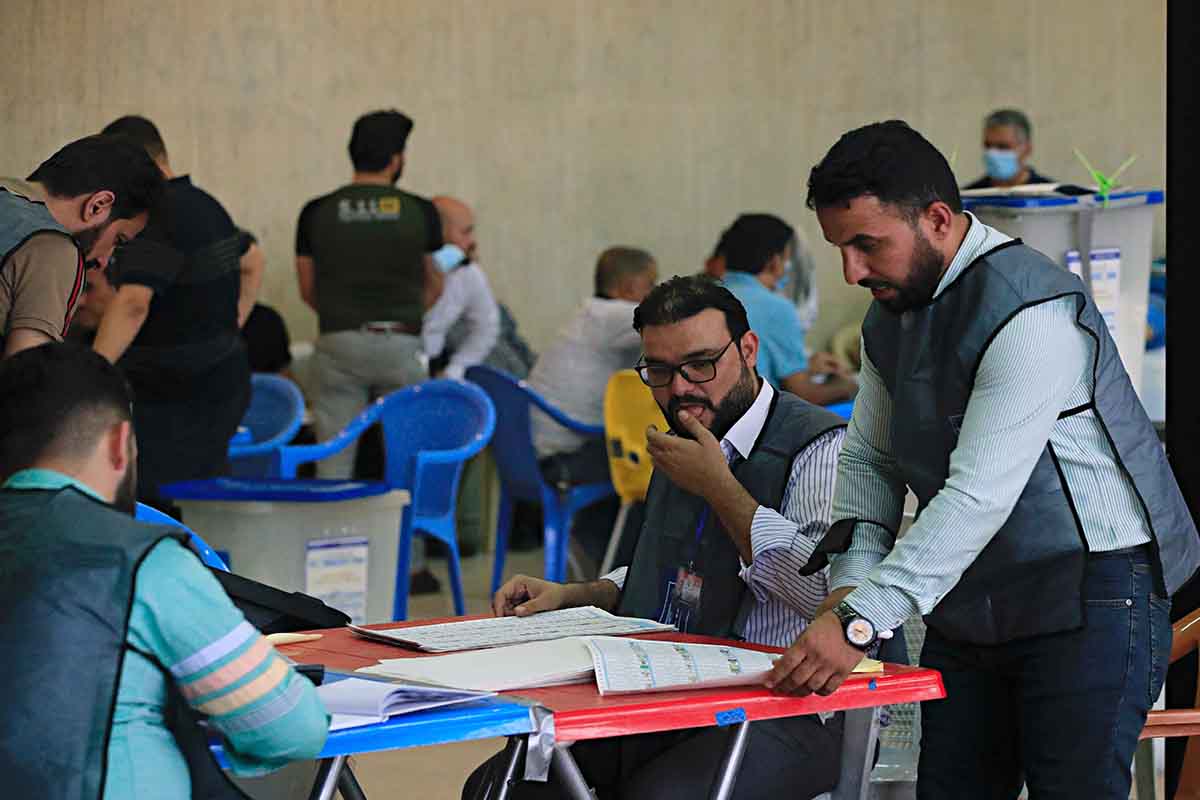
Photo Source: AP Photo/Hadi Mizban
On Monday, October 11, Iraq counted the votes after the lowest ever election turnout. According to officials, only about 41% of the country voted this time around. In Baghdad, the number was between 31% and 34%. This election was in response to the protests that occurred in 2019, with activists demanding jobs and services and political overhaul. Hundreds of protesters were killed by the military in a crackdown response.[1] In the end, Shia Muslim cleric Moqtada al-Sadr's party won the most votes, earning his party more seats in the parliament. Sadr’s group however, still must join others in negotiations to form a new administration. Sadr made a live speech accepting his victory and promising to create a nationalist government that lacks foreign interference.[2]
Source: [1]CNN [2]CNN
Coronavirus Updates (2)
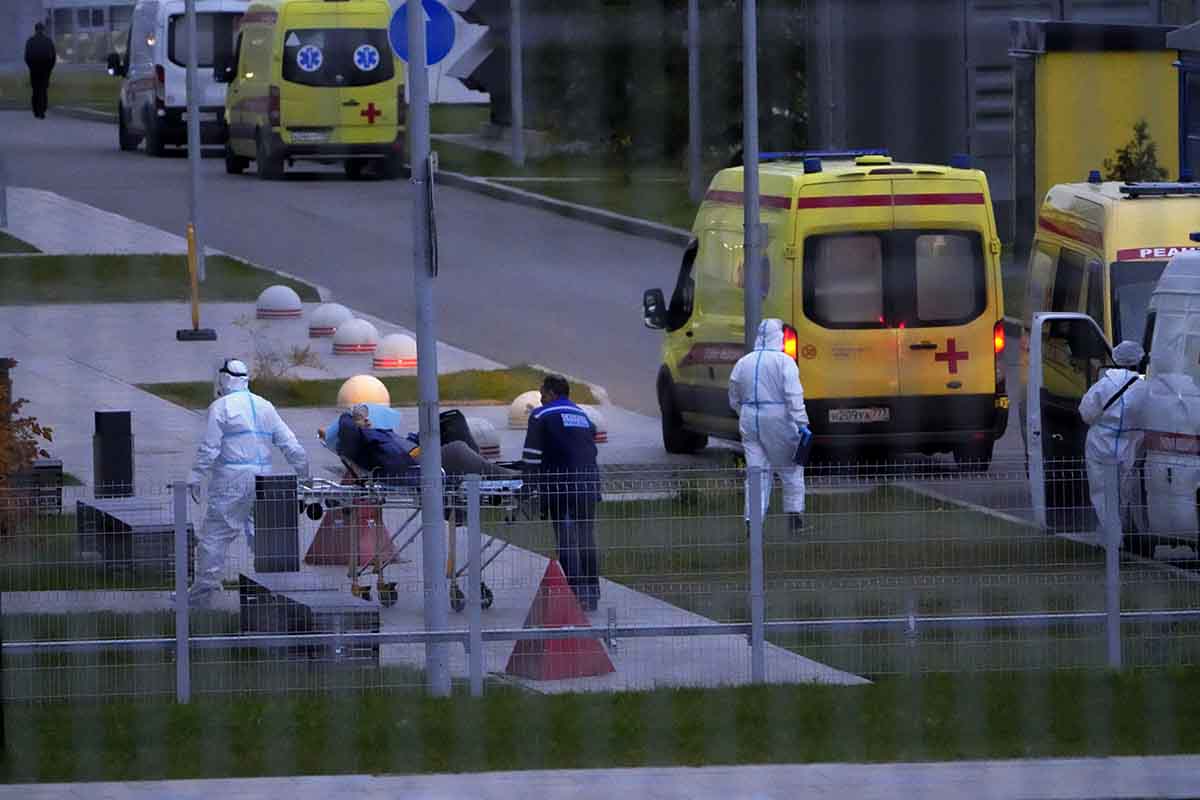
Photo Source: AP Photo/Alexander Zemlianichenko
On Monday, October 11, Sydney, Australia ended its 107-day lockdown. Lines quickly formed outside pubs and shops, as people excitedly waited to reunite not only with loved ones, but also with loved pastimes. Most restrictions have been eased for fully vaccinated people.[1] On Monday, October 11, Thailand announced that come November 1, it will open up borders to fully vaccinated people from 10 low-risk countries. These 10 nations include China, UK, Germany, and the US. Thailand will also reopen venues and alcohol sales in December, when it also plans to open borders to more countries.[2] On Tuesday, October 12, Chinese officials announced that they are preparing to test thousands of blood bank samples in Wuhan in an attempt to discover the origin of Covid-19. The nearly 200,000 samples span as far back as 2019 and are thought by the WHO to contain some answers.[3] On Saturday, October 16, Russia reported a record number of cases and deaths in a 24 hour period. Over 1,000 people have died from Covid and over 33,000 new cases were reported in the last 24 hours. However, lawmakers have made it clear that they refuse to impose a country-wide lockdown. Instead, President Putin urged lawmakers to highlight the importance of the vaccine. Despite being the first country to approve a vaccine, Russia is far behind other countries in vaccination numbers.[4]
Source: [1]BBC [2]BBC [3]CNN [4]CNN
Check out some more Covid resources.
Unrest in Afghanistan Continues
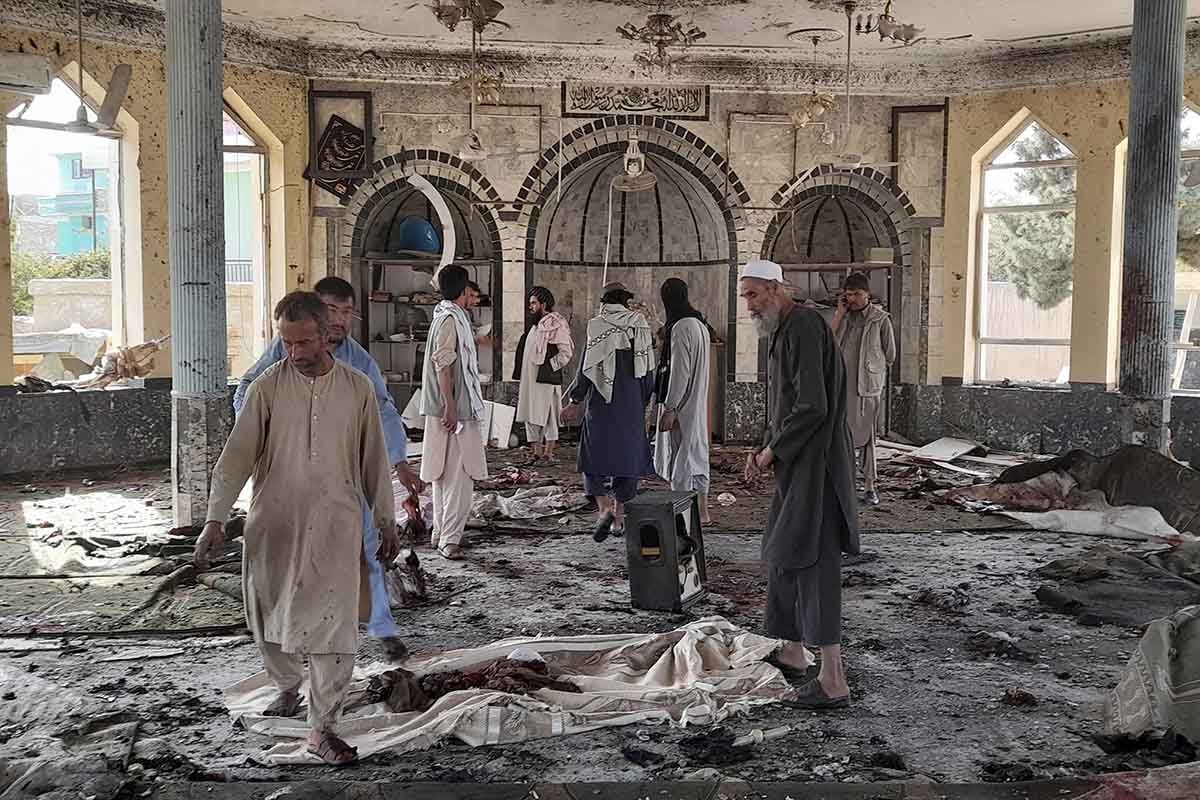
Photo Source: AP Photo/Abdullah Sahil
On Monday, October 4, a Taliban spokesperson stated that a blast targeting a Kabul mosque has left multiple civilians dead. The mosque was filled with people attending a funeral. No one has claimed responsibility for the attack and it is unclear who was the official target.[1] On Friday, October 8, a deadly suicide blast rocked the Shia mosque in north Afghanistan. At least 46 people died and another 143 were injured. According to a released statement, ISIS-K claimed responsibility for the attack. The group also claimed responsibility for the deadly attack that occurred Monday, killing at least 7 people.[2] That same day, a deadly suicide attack also targeted a mosque in Kunduz. At least 50 people died in the deadliest attack to occur since the US withdrew. ISIS-K also claimed responsibility for this attack. This is the third deadly attack to occur in the last week.[3] On Friday, October 8, the UN released a report regarding the collapse of healthcare in Afghanistan. Medical employees have not been paid in 6 months and facilities are now out of equipment and medicine. The area is also facing an intense food shortage. The UN stated that more than 12 million Afghans are relying on aid for food.[4] On Saturday, October 9, the US and Afghanistan held their first face-to-face talk since the withdrawal. The US had stated that these talks do not equate to its recognition of the Taliban as a government. The talks in Qatar are instead designed to focus on issues with extremist groups, humanitarian aid, and removing more US citizens. The two groups agreed to uphold the terms outlined in the Doha agreement in 2020. The US also agreed to help deliver Covid vaccines and humanitarian aid.[5]
Source: [1]CNN [2]CNN [3] [4]CNN [5]BBC
Learn more about Afghanistan.
Violence and Tragedies Grip Various Countries
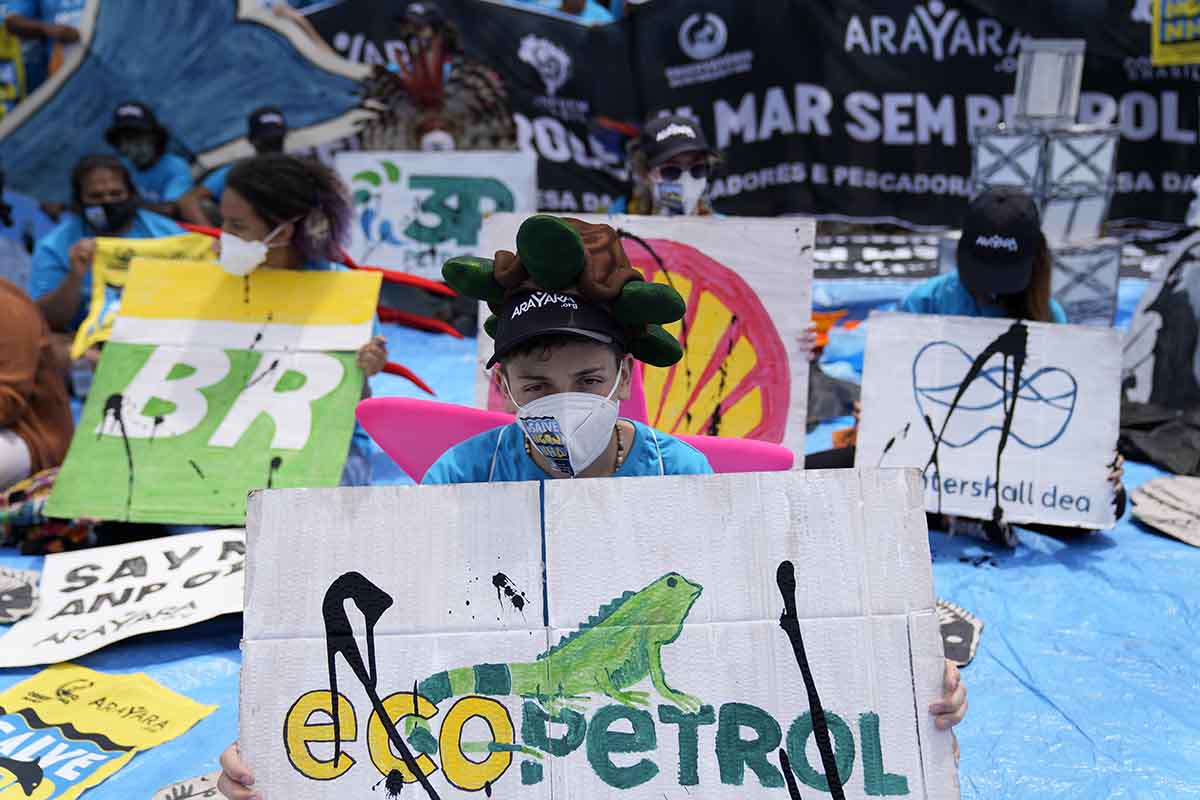
Photo Source: AP Photo/Silvia Izquierdo
On Saturday, October 2, protests erupted around Brazil as many marched for the impeachment of President Bolsonaro. The Covid-wracked country has been facing hunger, unemployment, and worsening economic conditions. Protests have been erupting in major cities across Brazil for quite some time now. Rising fuel prices and Bolsonaro’s handling of Covid-19 are also factors in the protests.[1] On Saturday, October 2, following the deadly prison riot, Ecuador announced it would be pardoning numerous inmates. Thousands of sentences will be reduced or removed in an attempt to lessen the strain on the overcrowded prisons. The country is prioritizing 2,000 cases of the elderly, women, and those who are disabled or terminally ill. The violent clash itself is still under investigation.[2] On Monday, October 4, all 8 people onboard a small flight were killed after the plane crashed into the side of a building in Milan. The building, which was being renovated at the time, was luckily empty.[3] On Monday, October 4, violence erupted in India after a car ran over two farmers protesting India’s Uttar Pradesh state. The car was allegedly connected to a federal minister. After the two farmers were struck, violence broke out, resulting in the deaths of at least 8 people. The farmers have been protesting since the end of September.[4] On Thursday, October 7, at least 33 people were injured after a train collision occurred in Tunisia. An investigation was ordered to discover the cause of the crash.[5]
Source: [1] CNN [2]CNN [3]CNN [4]CNN [5]CNN
North Korea Opens Communication with South Korea
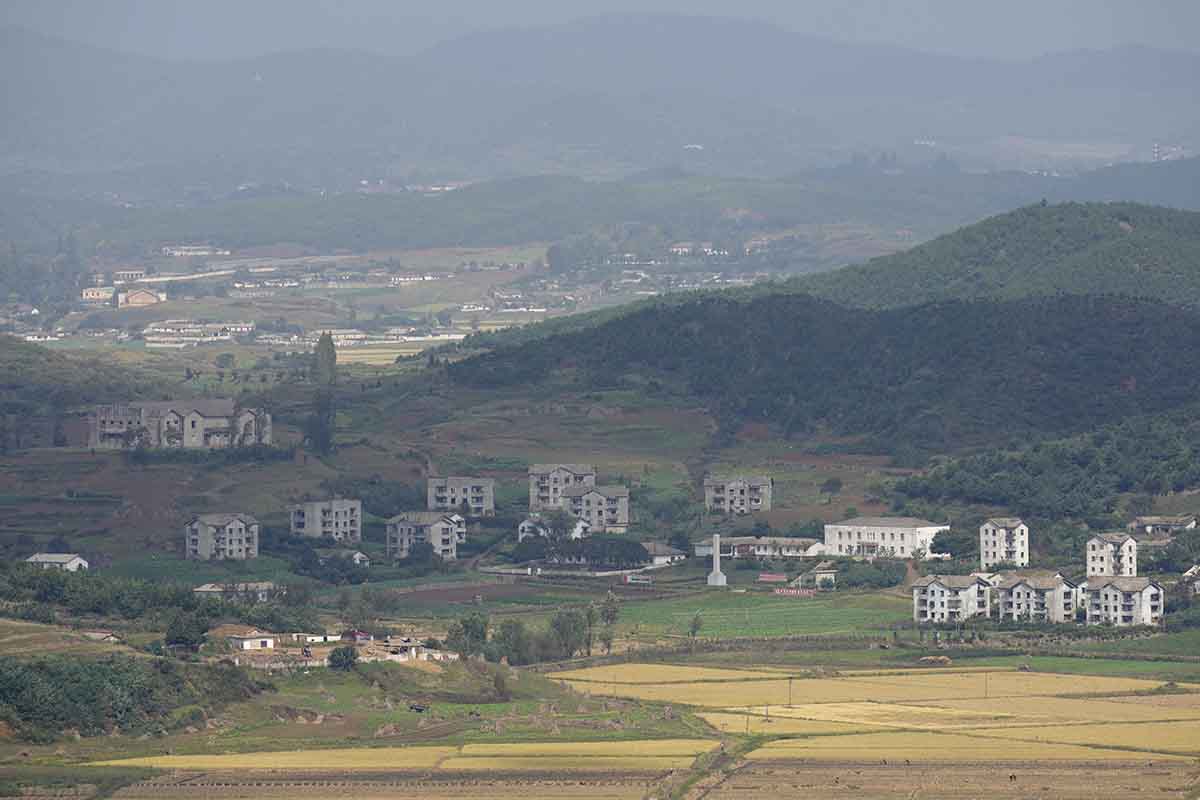
Photo Source: AP Photo/Lee Jin-man
On Monday, September 4, it was reported that North Korea reopened communications with South Korea. This is the first time communication lines between the two have been opened in months. Kim Jung Un stated last month that he didn’t see a reason for the North to attack the South. South Korea has called for an end to the peninsula war.
Source: CNN
Learn more about Korea.
Coronavirus Updates
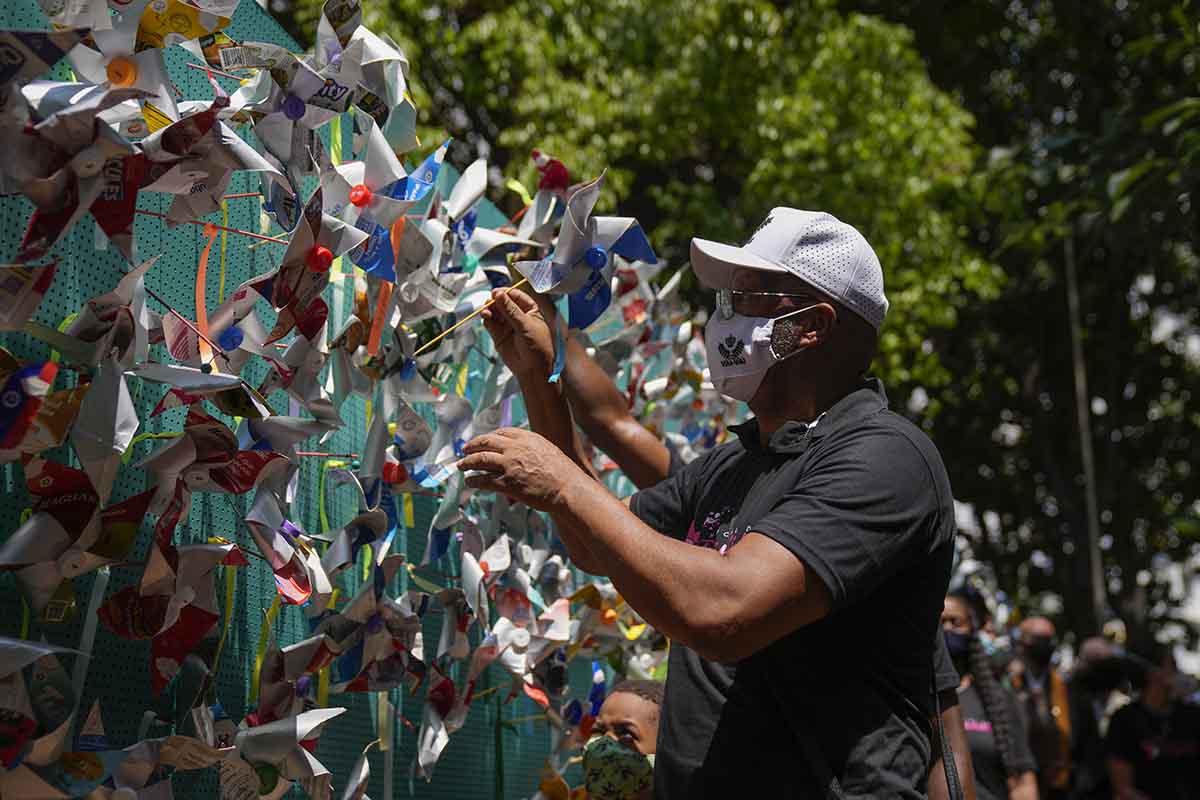
Photo Source: AP Photo/Andre Penner
On Sunday, October 3, New Zealand’s government announced that starting November 1, all foreign nationals entering the country must be vaccinated against Covid. Travelers will now need to input their vaccination status when using the country’s isolation system, as well as show proof of their vaccination upon landing.[1] On Thursday, October 7, the AstraZeneca vaccine arrived in Antarctica. The vaccine was flown out to be administered to the 23 scientists still conducting research on the continent. Few Covid cases have been reported in the area, and strict measures will be put in place as the summer research season approaches.[2] On Saturday, October 9, Brazil surpassed the grim number of 600,000 deaths, making it the country with the second highest death rate, right behind the US. President Bolsonaro continues to receive criticism from many civilians.[3]
Source: [1]CNN [2]BBC [3]CNN
Check out some more Covid resources.







